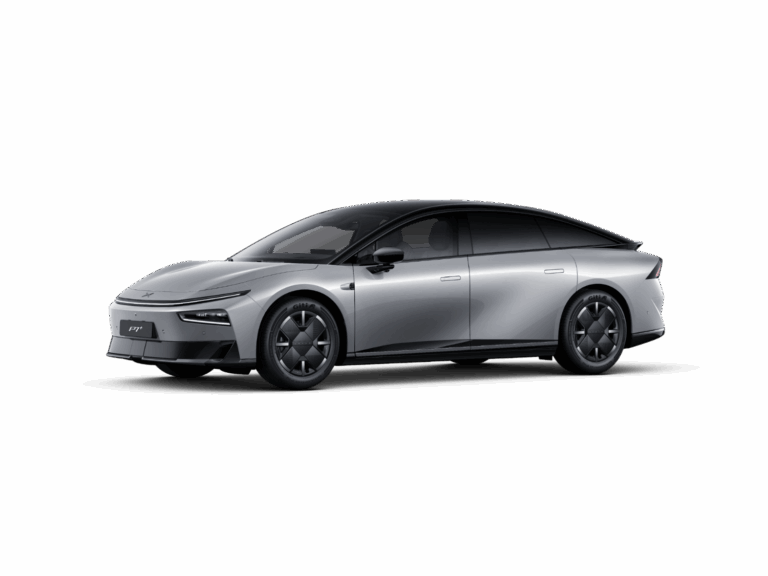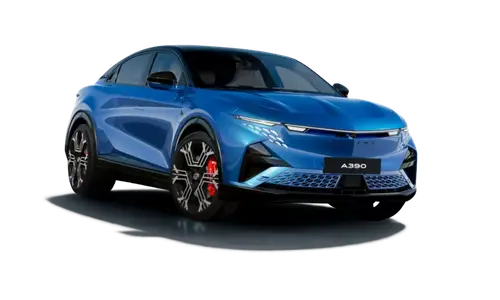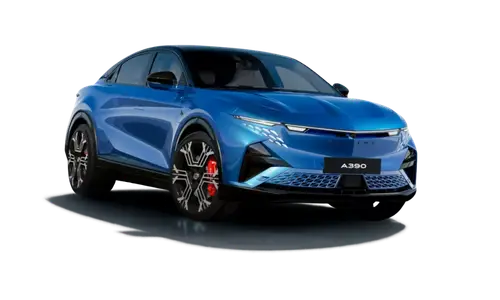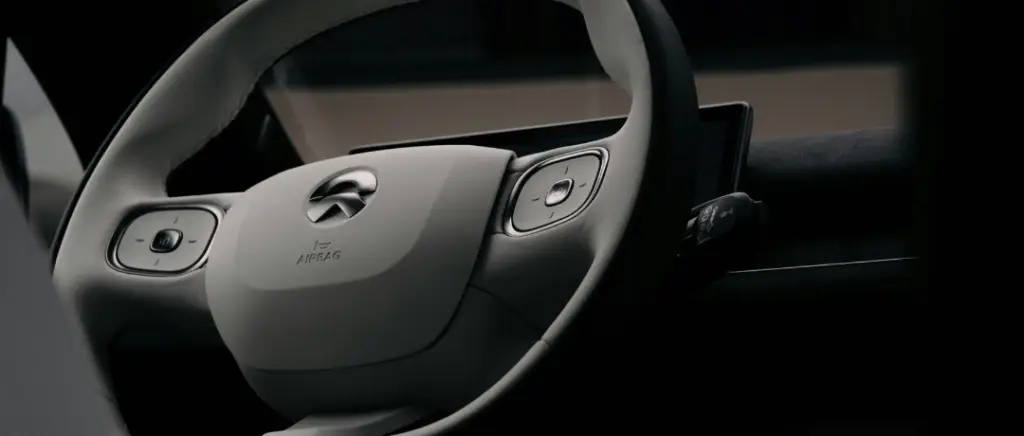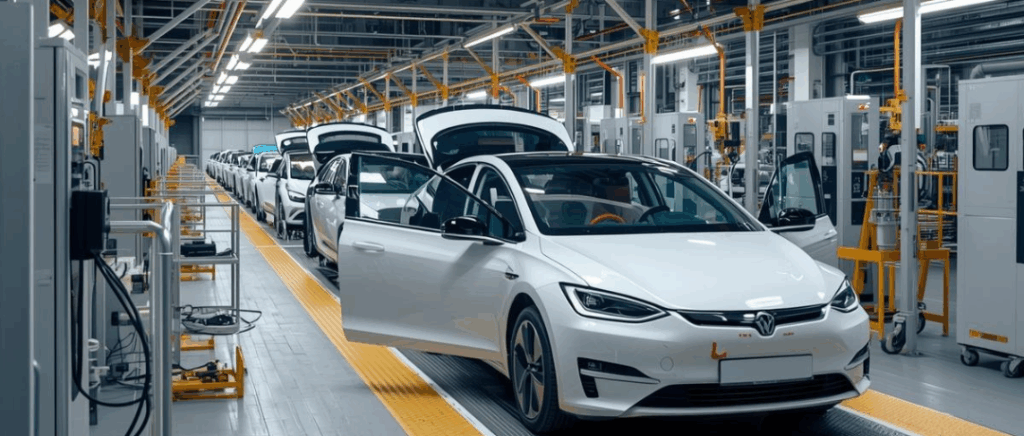Monday to Friday
9am - 12.30pm - 2pm - 7pm
Understanding your real needs
What is theautonomy necessary?
To choose the ideal electric car, it's essential to accurately assess the range required. This step allows you to choose a vehicle that not only suits your lifestylebut to your specific mobility needs. Here's our advice:
- Determine your daily journeys: calculate the total distance you usually travel in a day. Don't forget to include home-to-work journeys, shopping and extra-curricular activities if you have children.
- Consider occasional journeys: think about your independence needs for longer journeys you might undertake, such as holidays or family visits.
- Anticipate unforeseen events: add a safety margin to your range calculation to cover unforeseen events, such as detours or adverse weather conditions, which can increase energy consumption.
- Consider the charging options available: your ability to recharge your vehicle easily at home, at work or on the road will influence the level of range you need.
Also read → Electric car battery autonomy: where do we stand?
Urban drivers, for example, are often happy with electric cars such as the Renault Zoë e-Tech or the Peugeot e-208offering autonomy between 200 and 300 kmideal for getting around town without the hassle of recharging every day. Those who regularly make long journeys to work can benefit from the Tesla Model 3 or the Hyundai Kona Electricwhich, with its autonomy 300 to 400 kmThis eliminates the stress of recharging over intermediate distances.
For lovers of adventure and long-distance travel, the Tesla Model S or the Ford Mustang Mach-Ecapable of surpassing 400 km on a single chargeThis will give them greater freedom of movement and peace of mind when travelling far from home.
Choosing the right range is therefore an initiative that has to come from you and match your travel habits.
What are the criteria for choosing an electric car?
A number of essential criteria should guide your choice towards the ideal electric car that matches your expectations and lifestyle. The decision is based on several major factors that directly influence your user experience and the suitability of the vehicle for your daily needs.
Range and recharging capacity
The range of an electric car remains the most important criterion, determining the maximum distance that can be covered without needing to recharge. This is a crucial aspect for regular drivers, especially those who undertake long journeys. At the same time, recharging options and speed are equally important. The availability of fast-charging stations close to home or work, as well as the vehicle's ability to withstand rapid recharging, are determining factors.
Also read → Top 10 long-range electric cars
Total cost of ownership
In addition to the purchase price, the total cost of ownership of an electric car includes electricity, maintenance, insurance and, where applicable, public recharging costs. Electric cars, which are renowned for their lower maintenance costs compared with combustion-powered vehicles, can offer substantial savings over the long term.
Here, for example, is the total cost of ownership for the Tesla Model 3 over a 5-year period:
| Coût | |
|---|---|
|
Purchase price (after subsidies)
|
43 000 €
|
|
Cost of recharging (over 5 years)
|
2 000 €
|
|
Maintenance and repairs (over 5 years)
|
1 200 €
|
|
Insurance (over 5 years)
|
2 800 €
|
|
Depreciation (over 5 years)
|
12 000 €
|
Performance and technical specifications
The performance of an electric car, such as acceleration and top speed, and its technical features, such as boot capacity or on-board technology, play an important role in the choice of model. Electric driving often offers a responsive and dynamic experience, but each model has its own specific features that may appeal to different driver profiles.
Also read → Top 10 most powerful electric cars
Comfort and space inside
Driving comfort and interior space are essential, especially for families or those who spend a lot of time on the road. The ergonomics of the seats, the quality of the materials, the sound insulation and the space available for passengers and luggage are all criteria that should not be overlooked.
Environmental impact and sustainability
Finally, the environmental impact of an electric car is an increasingly important criterion. Consumers who are aware of their ecological footprint are seeking to understand the origin of the electricity used for recharging, as well as manufacturers' sustainable battery production and recycling practices.
What are the different profiles of electric car drivers?
The city dweller
The profile of the city dweller is characterised by the use of their electric car, adapted to the life and geographical constraints of big cities. This type of user favours electric mobility for their daily journeys, while at the same time respecting the environment.
Why are electric vehicles particularly attractive to city-dwellers?
- ease of driving and comfort in urban environments: ideal for city traffic and frequent stops (traffic jams, traffic lights),
- Quiet operation: helps reduce noise pollution,
- savings on fuel and maintenance costs.
The cities also offer recharging infrastructure is becoming increasingly widespread, with charging points available in public car parks, shopping centres and even near offices. This access to a wide range of recharging options is perfectly suited to the needs of city dwellers, who can recharge their vehicles while working, shopping or enjoying urban leisure pursuits.
Finally, the ecological aspect cannot be ignored. Aware of their environmental impact, city dwellers are often looking for sustainable solutions to reduce their environmental footprint. carbon footprint. Adopting an electric car is part of this eco-responsible approach, supported by city policies to promote clean mobility. Models such as the Fiat 500ᵉ or even the Opel Corsa-e are perfectly suited to the needs of the city driver.
Also read → How do I charge my electric car at a public charging point?
The worker
In 2024, the profile of the worker is becoming increasingly important in the segment of electric car users. People who commute to and from work on a daily basis have very specific needs when it comes to choosing their electric vehicle.
The electric vehicle's range is of paramount importance to them. This type of driver is looking for models capable of covering their round trip without any problems and without the need for an intermediate recharge, even taking into account the weather, which can affect the vehicle's performance. battery. The aim is to avoid the anxiety associated with independence, so that you can concentrate fully on your working day.
The ability to recharge the vehicle easily, whether at home, at the office, or at fast-charging points along the way, is also a decisive criterion. Workers therefore prefer electric vehicles that are compatible with a wide range of recharging solutions, offering them flexibility and peace of mind.
Spending many hours in their vehicles, workers attach great importance to comfort and on-board technology. They look for models that offer a spacious cabin, an intuitive navigation system and advanced driving aids to make their journeys as pleasant and safe as possible.
Also read → Electric cars: the smart choice for combining teleworking and business travel?
The travelling family
The travelling family represents an important segment for the electric car market. These modern adventurers are looking for vehicles that can accompany them on their family getaways with comfort, autonomy and respect for the environment. For these families, the choice of an electric car is guided by very specific criteria, reflecting their unique mobility needs.
Why is autonomy their number one criterion?
For the travelling family, range is the number one criterion. The long distances covered during holidays and weekends require a vehicle capable of covering several hundred kilometres without an intermediate recharge. Recent models like the Kia EV6 or the Volkswagen ID.4with a range of over 400 km on a single charge are ideal for this type of driver.
Interior space is also a determining factor. A spacious cabin, capable of comfortably accommodating the whole family and their luggage, is essential. Ergonomic seats, an efficient air conditioning system and careful soundproofing all contribute to making long journeys more enjoyable for young and old alike.
Also read → Which electric cars will have the biggest boot in 2024?
Families also attach importance to safety features (automatic emergency braking systems, pedestrian detection and driving aids). The
Entertainment equipment, such as connected multimedia systems and screens for passengers, is also an important factor in keeping children occupied during journeys.
Access to fast, efficient charging stations along motorways and in more remote locations is another essential criterion. Travelling families are looking for electric vehicles that are compatible with a wide network of charging points (IonityFastned, Tesla Supercharger), enabling them to reduce downtime and plan their itineraries more easily.
Also read → The best recharging point networks in France
The versatile driver
As its name suggests, the all-round driver is someone looking for an electric vehicle capable of adapting to a wide range of needs (urban travel, long journeys and occasional trips) while offering performance, comfort and durability.
What does a multi-skilled driver look like?
Versatile drivers prefer electric vehicles that can handle both daily commutes and weekend trips without the stress of recharging. Models like the Škoda Enyaq iV or the Toyota bZ4Xwith their long range and rapid recharging capability, are the perfect answer to these requirements, offering the flexibility needed to adapt to any situation.
Space and comfort are essential to meet the varied needs of the all-round driver, whether carrying leisure equipment or comfortably accommodating family and friends. The Tesla Model Ywith its spacious interior and flexible seating configurations, is an excellent example of an electric car that meets these criteria, combining functionality with style.
Just as for travelling families, on-board technology plays an important role in both safety and entertainment. Advanced driver assistance systems and intuitive multimedia interfaces are therefore essential. The Ford Mustang Mach-Ewith its large central screen and numerous driving aids, is an attractive option for those who place technology at the heart of their driving experience.
Versatile drivers are also aware of the environmental impact of their mobility choices. Opt for electric vehicles designed with sustainable materials and offering high energy efficiency, such as the Hyundai Ioniq 5This means you can combine environmental responsibility with driving pleasure.
Good to know
Are top-of-the-range electric cars really worth their price tag for everyday use?
It all depends on your priorities. If advanced technology, comfort and greater range are important to you, a top-of-the-range electric vehicle is a good investment. For more basic needs, many affordable models offer a satisfying experience.
How does the cost of recharging influence the choice of an electric vehicle?
The cost of recharging varies according to your electricity supplier and the place where you recharge (at home or public stations). Calculate the estimated cost of recharging based on your expected consumption to choose a model that is the most economical for you.
Can electric cars be relied on for journeys in rural areas or areas with few charging points?
Choose a model with a long range and look for the charging points available on your route. Mobile applications (ChargemapA Better Routeplanner, PlugShare) will help you locate charging stations and plan your journeys.

















